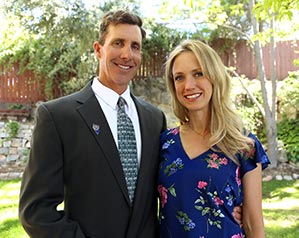
On June 16, 2017, at a Tesla facility in Las Vegas, Nevada Governor Brian Sandoval signed into law Assembly Bill 405.
The #Fisher4Nevada Team was there to cheer the governor on as he sat behind a table made from a solar panel (clever, huh?) and inked his signature onto this pivotal piece of new legislation.


For those who weren’t able to attend the signing, we thought we’d provide a brief summary on what the bill is and why it matters.
What Is AB 405?
AB 405 allows homeowners in Nevada who utilize solar energy to be credited at retail value for any excess energy they produce and export to the grid. This is done through a system known as “net metering.”
Net metering is popular with residents who own solar-powered homes, because as is frequently the case, solar homes produce more energy than they use, especially in cities like Las Vegas, which averages about 300 sunny days a year. Rather than having that extra energy go to waste, a net metering billing system allows the homeowners to essentially sell the leftover energy they don’t need to their community’s energy grid in exchange for an energy credit that they can use at a later date. This allows homeowners to build a reserve of excess energy that they can use on days when energy production is low—like when it’s overcast or rainy.
What AB 405 has done is dissolve a previous order that the Nevada Public Utilities Commission put into place that decreased credits for excess solar energy production and increased charges for homeowners.
Why the New Law is Important:
AB 405 will provide protections for solar customers
Beyond net metering, AB 405 enacts a bill of rights for homeowners that states, among other things, that energy companies cannot levy hidden fees. What’s more, utility companies cannot raise credit rates for 20 years on customers who have been grandfathered into the system. This is a big deal because it corrects a major problem solar customers had faced previously. In the past, residents would invest a large amount of money upfront to switch to solar power with the assumption that their energy costs would be lowered, only to encounter a slew of new fees and unexpected charges that made solar a far more costly option. AB 405 will help to ensure that this does not happen again.
The new law will bring more jobs to Nevada
When Nevada’s Public Utilities Commission’s order took effect, companies like SunRun and Vivint Solar pulled out of the Nevada market, resulting in the loss of an estimated 2,500 rooftop solar installation jobs. After the bill was unveiled, however, SunRun and Vivint announced that they would be returning to Nevada, bringing with them hundreds of local jobs.
Tesla has also announced plans for expansion in the wake of the new law, saying that Nevada’s focus on renewable energy should result in thousands of new jobs.
The electric carmaker said in a statement:
“Tesla will begin selling rooftop solar and residential storage products in Nevada, and we look forward to bringing even more jobs to the state in the years ahead to help provide residents with affordable rooftop solar and energy storage choices.”
Currently, Nevada ranks fourth in the country for the number of solar-related jobs.
The law sets the stage for future renewable energy legislation
Though two other energy bills were vetoed by Governor Sandoval last week, energy activists like RenewNV remain hopeful that this will be the beginning of Nevada’s bright future in solar.
As they said in a statement:
“Together, the suite of legislation has laid the foundation for a strong and growing renewable energy economy that will promote job growth and continued investment in Nevada’s clean energy economy.”
We couldn’t agree more! Jared and the entire #Fisher4Nevada team are excited about this new law and look forward to seeing what the future will bring.
About Fisher for Nevada—FisherforNevada.com is the official campaign website of Jared Fisher, a business owner and renewable energy enthusiast running for governor of Nevada in 2018. For daily updates on issues concerning Nevadans, you can follow Jared Fisher on Facebook and Twitter. You can also tweet at Jared your questions using the hashtag #HealthyNevada.


